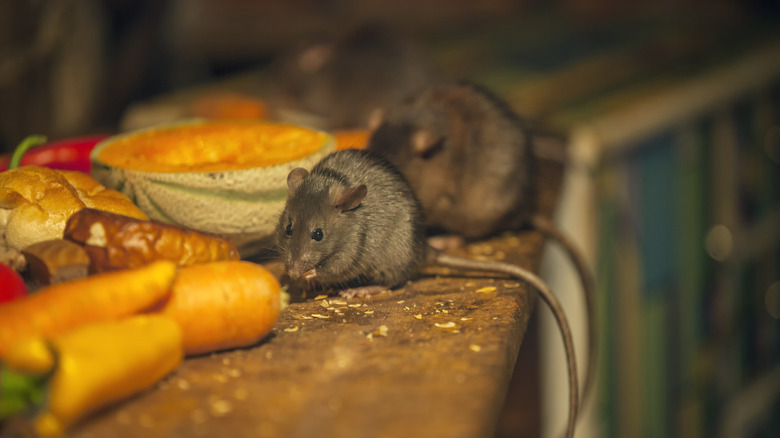Keep Mice Away From Your Kitchen With This Popular Spice
In some contexts, mice can be harmless critters running around in an open field. Cute, even. The kitchen, however, is a different story. There, mice will eat your food, cause a mess, and potentially even chew through hard materials and cables. But once a pattern is established and mice know what a great setup you've got, how can you keep them out without contacting exterminators or pest control? Interestingly, the solution may be in the very pantry being raided: cinnamon.
The main chemical compound in cinnamon is cinnamaldehyde, which is responsible for the flavor and scent of the tree bark. It's more potent in stick form, which is partly why it's not a good idea to eat raw cinnamon sticks, but ground cinnamon works just as well for this purpose. Mice have very sensitive senses of smell, given that they are primarily nocturnal, and their noses guide them toward food and away from danger. Cinnamaldehyde is pungent, even for humans, so it can overwhelm mice quickly and encourage them to go elsewhere. There are a few varieties of cinnamon on the market, but this is more relevant to cooking and won't make a big difference to the mice.
Keep in mind that if you're dealing with recurring infiltrations or a larger infestation, then cinnamon alone might not be enough. But for a mouse here and there, this is a great, non-lethal way of addressing the problem, and it doesn't require putting yourself or your family at risk, either, with toxic chemicals.
How to use cinnamon to deter mice
To get the ball rolling, identify where the mice are getting in and where they're targeting. Any cracks in the walls or open spots under the doors are easy entranceways for rodents. Note if any packaging looks to be chewed or if any food has been tampered with. Fruits, vegetables, and grains are common pantry items that mice enjoy, and any food scraps are also at risk. Place cinnamon on all potential entrances and inside the pantry. A light layer could be enough, but it might be worth going harder if the rodent infiltration is lightning but not stopping altogether. Cinnamon powder will remain effective for up to three days, but this will be reduced if the area is humid or has particularly strong airflow. Then, it should be reapplied daily. Cinnamon sticks, given their potency, can actually stay fragrant for four to six weeks before needing to be replaced. That said, sticks are the costliest form, and their scent might not spread across the room as well; they will just be overwhelming once the mouse reaches it.
Cinnamon oil is also effective for up to two weeks for pure oil, but diluted mixtures will need replacing every three to five days. To make your own, break up cinnamon sticks into a small container. Cover that with a carrier oil (think grapeseed or jojoba), then leave the mixture to infuse for up to three weeks, shaking occasionally. After that, strain your oil through a cheesecloth. Keep in mind, as part of your wider strategy, all food scraps should be cleared from the counters, floors, and sinks. While throwing them out is the logical next step, mice can actually get inside bins that don't have a heavy top, which is why rodents are a common issue for composters.


